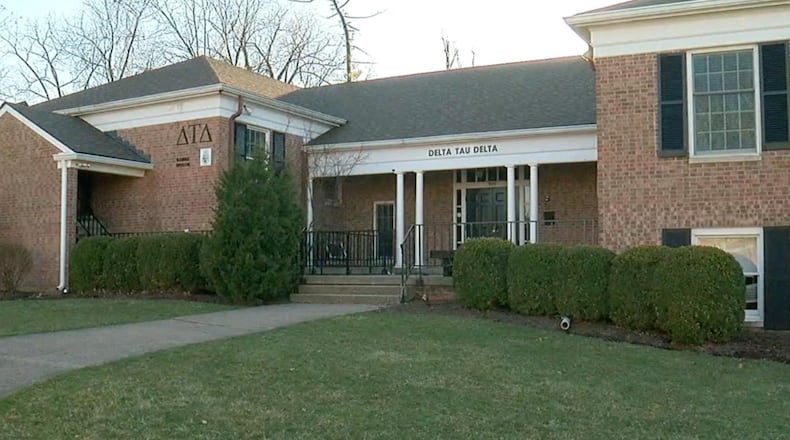Despite local and national hazing incidents, some long-time observers of the college Greek community aren’t optimistic such abuse will easily fade.
Recent allegations from a Miami University student, who claims he was physically assaulted during fraternity pledge initiation, raised the problems from hazing back into the spotlight.
But Miami officials point to long-planned rules kicking in this week for its student Greek community as a new way they are battling the problem.
Oxford Police and university officials are still investigating the student’s allegations against some members of Miami’s Delta Tau Delta fraternity house. He claims the March 16 incidents, which he said included being forced to drink alcohol and smoke marijuana, beaten with a spiked paddle and kicked, constituted hazing.
Miami officials suspended Delta Tau Delta and followed up with a strongly worded condemnation from University President Gregory Crawford.
But despite growing awareness and campus campaigns across the nation in recent years – often ignited by hazing resulting in a student’s death – such abuse among fraternities and sororities continues to periodically pop up, officials said.
Dr. Susan Lipkins, psychologist and author of “Preventing Hazing: How Parents, Teachers and Coaches Can Stop the Violence, Harassment and Humiliation,” said the abusive practice may only be controlled, but never eliminated.
“Unfortunately, I do not believe that hazing is on the decline. The ‘code of silence’ which is part of all groups that haze, gives the students the perception that no one will be held responsible for any damages to people or property, said Lipkins, whose website “Inside Hazing” is an often-accessed resource for schools and parents looking to stop hazing..”
“Hazing is a process used by groups to maintain a pecking order … or to discipline. The activities are based on a tradition and may be physically or psychologically harmful or potentially harmful.”
Nevertheless, Miami officials are trying to stem what has been over the years a periodic problem on its main Butler County campus.
Last fall school officials announced rule changes for campus fraternities that begin this week as students return from spring break.
“Fraternities will need to have new members complete online training courses on leadership and accountability. And groups will complete a new-member period in four weeks (down from eight),” according to a statement released by Miami officials.
“In the recruitment period of spring 2020, all new members will be required to have a GPA of at least 2.75 (up from 2.5) to join a fraternity. And another new expectation resurrects an old practice: To obtain the second-year exemption that allows sophomores to live in fraternity houses (Miami otherwise mandates first- and second-year students to live on campus), fraternities will need to have live-in house directors,” starting in fall 2019.
“The new policies for fraternities come primarily out of concern for student health, safety and well-being and, ultimately, their success,” said Jayne Brownell, Miami vice president for Student Life.
The live-in house directors will oversee property and events and provide general oversight to the chapters, said officials.
“Fraternities at Miami University have been leading for generations,” Crawford said. “Under this plan, our fraternities will focus on developing leaders who uphold our values and advance the success of our students.”
But Chris Maraschiello, a Miami graduate and former top official during his post-graduate years with the school’s Greek system, is skeptical about the reforms.
“Getting people at Miami to speak out, while desirable and necessary, will be close to impossible,” said Maraschiello, who is a veteran teacher with Hamilton schools.
He claims there is “an ingrained, ossified Greek culture. People are extremely hesitant to speak out unless they intend to sever all affiliation with their organization.”
About the Author
